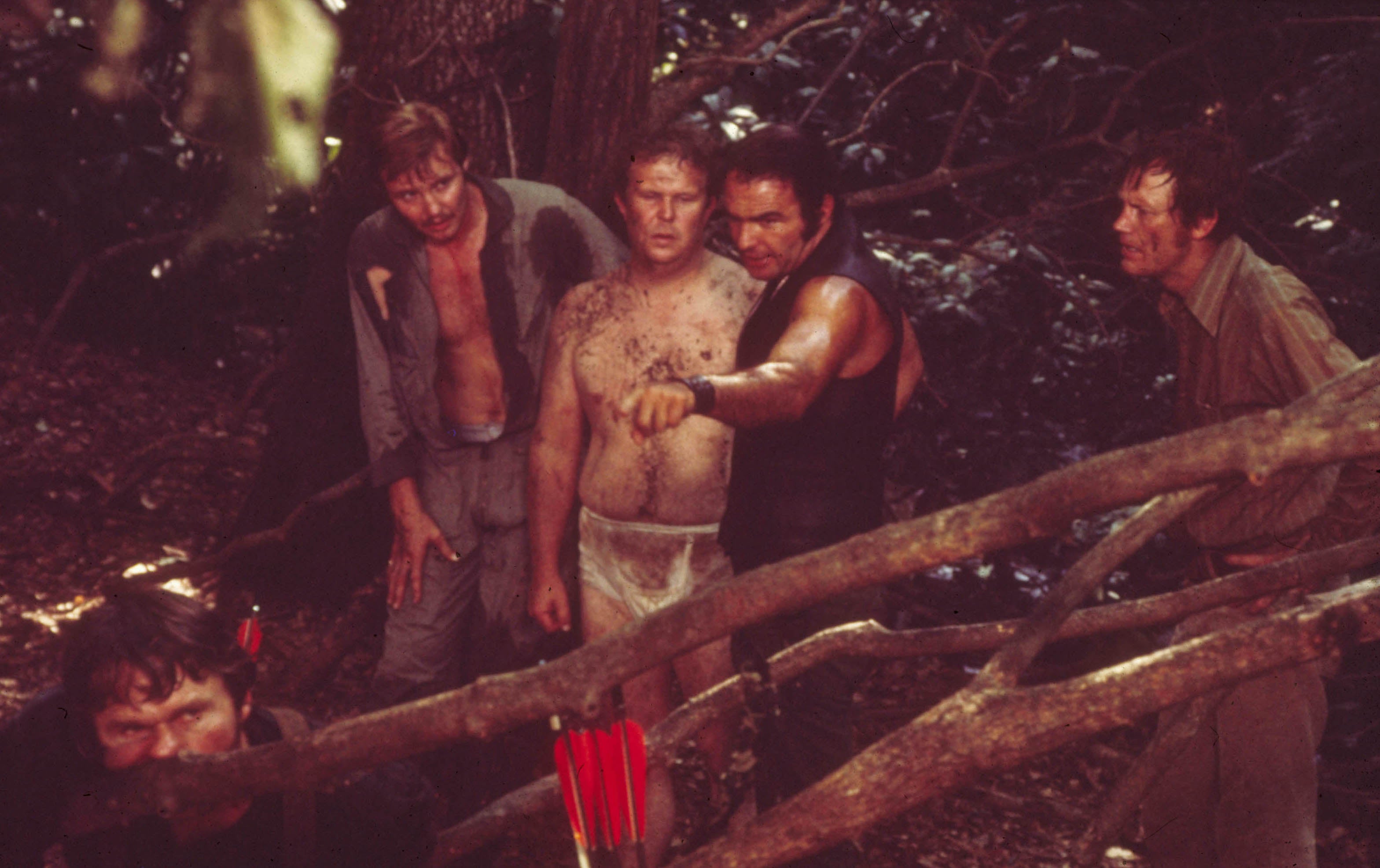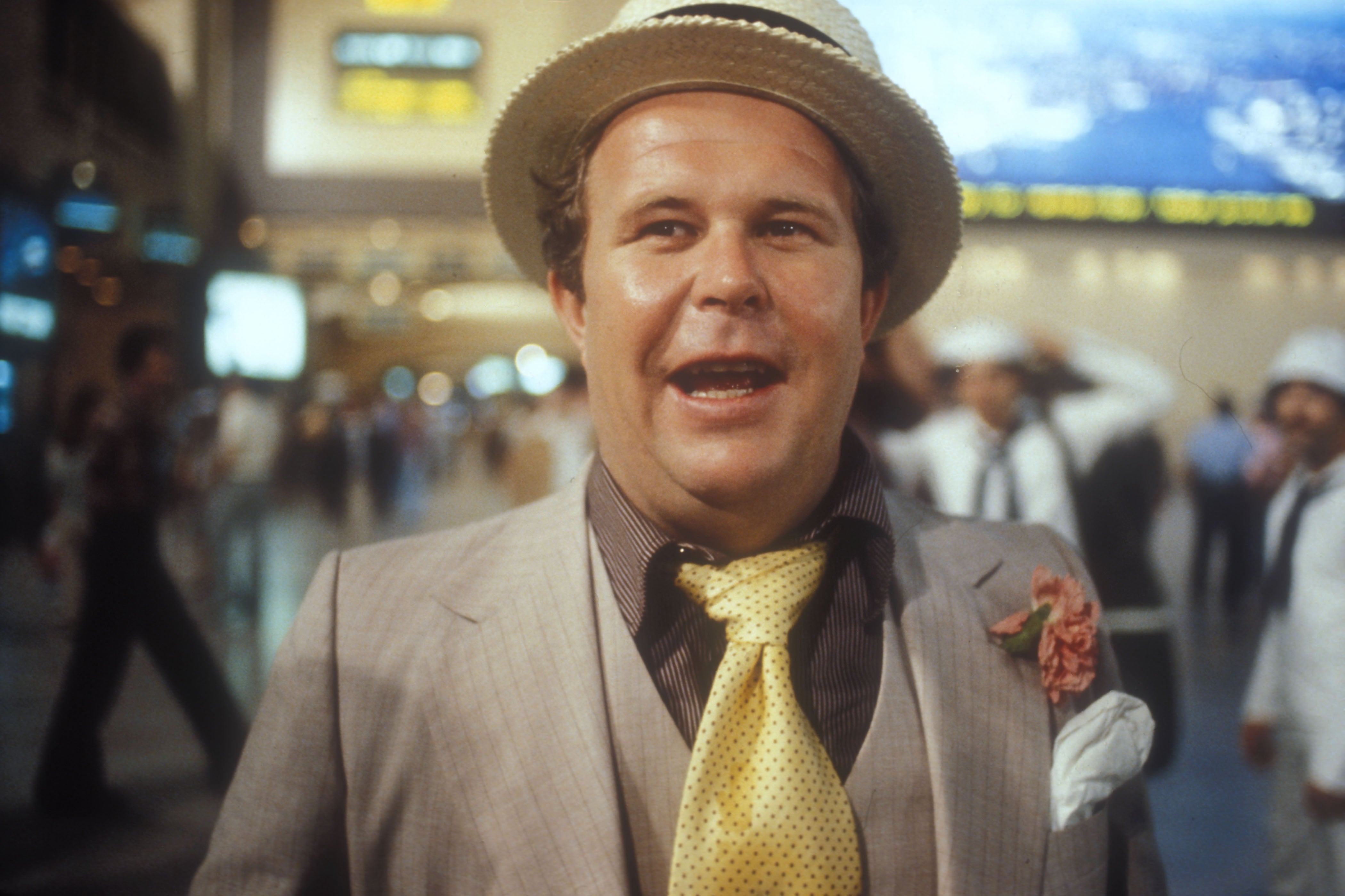
Ned Beatty, a supporting actor whose hundreds of screen and stage roles captured the full spectrum of humanity – from sincerity to villainy, buffoonery to tragedy – and made him one of the most versatile performers of his generation, has died aged 83.
In a career spanning six decades, Beatty marshalled his booming voice, roly-poly physique, beady eyes and Cheshire-cat grin into an impressive range of characters: amiable, self-deluding, menacing, terrified, or a nuanced combination of the four.
After years working in theatre – including eight seasons with Arena Stage in Washington – Beatty emerged in his mid-30s as a much in-demand supporting actor on-screen. His movie debut was in Deliverance (1972), about a quartet of Atlanta businessmen (Burt Reynolds, Jon Voight and Ronny Cox were the others) whose canoeing adventure in Appalachia turns into a gruesome tale of rape and murder.
He went on to play southerners of various stripes, including a racist sheriff in White Lightning (1973), a country singer in WW and the Dixie Dancekings (1975) and a fried-chicken magnate in Stroker Ace (1983), all starring his friend Reynolds; and an unsavoury promoter in Robert Altman’s acclaimed drama Nashville (1975).
In brief appearances, Beatty was a bumbling technician of a nuclear-powered bus in the disaster parody The Big Bus (1976); a loutish travelling salesman (who gets a bucket of ice cubes down his pants courtesy of Jill Clayburgh) in Silver Streak (1976); and Florida investigator Martin Dardis in All the President’s Men (1976), about Washington Post reporters Bob Woodward and Carl Bernstein (played by Robert Redford and Dustin Hoffman) unravelling the Watergate scandal.
One of his most memorable screen moments came in Network (1976), an acid satire of media and modern culture, in which Beatty’s powerful TV executive Arthur Jensen delivers a fire-and-brimstone sermon about global capitalism.

“You have meddled with the primal forces of nature, Mr Beale,” Jensen fulminates to deranged news anchor Howard Beale (Peter Finch), whose on-air rants have raised questions about a shady business deal involving the conglomerate that owns the network.
Beatty earned an Oscar nomination for Best Supporting Actor but lost to Jason Robards, who played Post editor Ben Bradlee in All the President’s Men. Beatty later told People magazine he was grateful simply for a chance to play a tough-minded businessman after a run of southern-fried “schnooks”.
“If I’d been casting that role,” he said of Jensen in Network, “I'd have been the last person I’d have thought of. Basically, I look like a used-car dealer.”
Over the years, Beatty provided much-needed ballast to dozens of lightweight movies. He was the clueless henchman Otis to Gene Hackman's Lex Luthor in Superman (1978) and its 1980 sequel, an ex-priest in Exorcist II: The Heretic (1977), an oily college dean (Dean Martin) in the Rodney Dangerfield comedy Back to School (1986) and a corrupt police captain in The Big Easy (1986), starring Dennis Quaid.
New Yorker movie critic Pauline Kael marvelled at Beatty’s “marvellously piggish” turn as a corrupt district attorney in the otherwise wan romantic comedy Switching Channels (1988), starring Reynolds, Kathleen Turner and Christopher Reeve.
“Stars never want to throw the audience a curveball,” Beatty once told The New York Times, “but my great joy is throwing curveballs. Being a star cuts down your effectiveness as an actor, because you become an identifiable part of a product and somewhat predictable. You have to mind your ps and qs and nurture your fans. But I like to surprise the audience, to do the unexpected.”
Ned Thomas Beatty was born in Louisville, Kentucky, on 6 July 1937, and grew up in nearby St Matthews, where his mother was a high school cafeteria worker. He was 15 when his father, a travelling salesman of filtration products, died.
He helped support his family by singing at weddings and other functions. He earned a music scholarship to Transylvania University, a Disciples of Christ school in Lexington, and considered becoming a minister before he felt a more secular calling – to the theatre. “Most preachers are frustrated actors,” he told People magazine, “and most actors are frustrated preachers.”
For much of his youth, he said, his girth and stentorian voice made him a natural fit for older characters, such as Anton Chekhov’s Uncle Vanya and Arthur Miller’s Willy Loman and brought him steady work for 13 seasons at regional theatres such as the Barter in Abingdon, Arena Stage and the Mark Taper Forum in Los Angeles.

In 1991, Beatty had a rare leading role on-screen, portraying Irish tenor Josef Locke in Hear My Song. (His vocals were dubbed by Vernon Midgley.) He kept up his hectic pace with small parts, such as the steelworker father of an aspiring Notre Dame football player in Rudy (1993) and as longtime Maryland congressman Clarence “Doc” Long in Charlie Wilson’s War (2007). In Toy Story 3 (2010), he provided the voice of the evil bear Lotso.
“One reason I work so much is that I do a lot of what I call mortar acting,” he told The Times. “That is, in the cracks of the movie … When I’m playing one of those pieces of mortar, I pretend the movie is about that character and not the stars.”
Equally prolific in TV movies, Beatty received two Emmy Award nominations: one for Friendly Fire (1979), in which he played the grief-stricken father of a soldier killed accidentally during the Vietnam War; and another for Last Train Home (1989), as the builder of a Canadian transcontinental railway.
In addition to guest parts on shows such as The Rockford Files and M*A*S*H, he starred on the short-lived sitcom Szysznyk (1977-1978), as an ex-Marine working with inner-city Washington youths; and made recurring appearances on the sitcom Roseanne, as the father of John Goodman’s Dan Conner.
He returned to his stage roots in 2003 as the terminally ill Southern patriarch and vulgarian Big Daddy in a Broadway revival of Tennessee Williams’s Cat on a Hot Tin Roof, in which he won a Drama Desk Award for outstanding featured actor in a play. The New York Times theatre critic Ben Brantley wrote that Beatty “delivered a ripe character study that easily holds its own as a leading performance”.
During the production, Beatty drew the ire of his critically drubbed co-stars Ashley Judd and Jason Patric for saying they were gorgeous Hollywood stars out of their depth onstage. Judd, he told The Times, was “a sweetie, and yet she doesn't have a whole lot of tools”. Of Patric, he said, “He’s gotten better all the time, but his is a different journey.” (He later apologised, saying he had been exhausted from performing 11 shows in a week.)
His marriages to Walta Chandler, actress Belinda Rowley and Dorothy “Tinker” Lindsay ended in divorce. In 1999, he married Sandra Johnson, who was from Norway. In addition to his wife, survivors include four children from his first marriage; two children from his second marriage; and two children from his third marriage; and several grandchildren.
“I got eight kids! That’s my excuse for everything,” Beatty told the New York Observer of a prodigious career in which prestige was rarely a priority and work was all that mattered. “I got this call, and they tell me it’s a small independent with no money, but that it’s filming in Minnesota and it’s about early Norwegian immigrants,” he said. “I said, ‘OK, you got me!’ Cause I’m living in Minnesota and my wife is a Norwegian immigrant.’ What am I going to say – no?”
Ned Beatty, actor, born 6 July 1937, died 13 June 2021
The Washington Post







